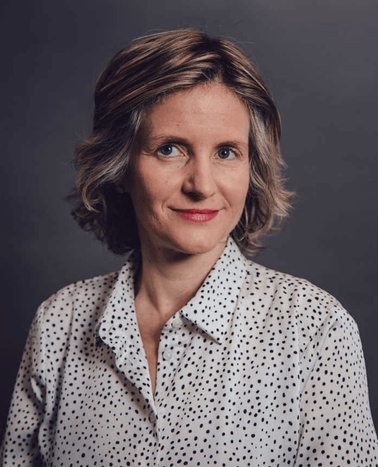
Soledad Atienza
Soledad Atienza decided to study law due to her interest in understanding how society and the State are organized, as well as her interest in justice. “Over the years I’ve observed how legal education can open doors to very diverse careers, in both the public and private sectors, in legal practice or in teaching, which is the area in which I currently work, and one that I did not expect to end up in,” she notes.
Soledad Atienza is the Dean of IE Law School. She graduated from the Universidad CEU San Pablo with a degree in law. She holds a master’s degree in European law from the Europa Institut of the Üniversität des Saarlandes and a doctorate in social sciences from IE University. Soledad advocates for adapting legal teaching methodologies for the training of future lawyers. She is also a senior advisor to the Academic and Professional Development Committee of the International Bar Association, as well as co-director of the Pérez Llorca/IE Chair for Commercial Law.

"A legal education can open doors to a variety of careers."
In an interview, Soledad told us about her experience, the influence of globalization in law and about her advice for students and future alumni.
Why did you decide to study law?
I studied law because of my interest in understanding how society and the State are organized, as well as my interest in justice.
Over the years I’ve observed how a legal education can open doors to very diverse careers, in both the public and private sectors, in legal practice or in teaching, which is the area in which I currently work, and one that I did not expect to end up in.
Tell us about an experience that has impacted your professional career.
I did an internship at the European Commission in Brussels, in the Directorate-General for Competition. There I worked with professionals from very different educational backgrounds, from different countries and in different languages, and I learned that my professional career need not be limited to a national one; it could be global.
What are the current trends in the teaching of law?
The globalization of society and of the economy affects higher education and, among other things, it directly affects the teaching of law.
Globalization has a direct impact on the content and manner in which law is taught. Currently, the content needs to be adapted to this globalized society. This can happen through the teaching of European Union Law, Comparative Law or Transnational Law.
With regard to the way things are taught, this needs to be adapted to the students’ profiles. Our students are international and are looking for a legal education that will allow them to pursue an international career.
Legal clinics are also a current trend in the teaching of law. Legal clinics emerged in the United States as an innovative way of teaching law and simultaneously contributing to society in the form of pro bono work. Little by little, legal clinics have spread to other countries, becoming the most important activity at some law schools.
How does globalization influence law programs, and how are we responding to this new context?
IE Law School has law programs that are designed for and taught to students looking for a global education, who aspire to build their careers in an international professional environment.
For example, our Bachelor of Laws is a program taught entirely in English, with students of over 20 nationalities and professors educated in different jurisdictions. We teach Comparative Law, focusing in particular on the comparison between Civil and Common Law systems.
What’s more, this program allows students to choose between studying UK Law (to be able to practice there), American Law (to be able to practice in the United States) or Comparative Law to then be able to practice in European jurisdictions.
What role do legal clinics play in the teaching of law, and how do they contribute to students’ education?
For many students the legal clinic is one of the best experiences of their time at law school. On the one hand it allows them to experience firsthand the client relationship in the real exercise of the legal profession, and on the other, it takes place in a learning environment with a professor and a lawyer who act as mentors for the students.
In addition, it’s enormously fulfilling for them to be able to contribute to society by offering this pro bono service to NGOs and social entrepreneurs.
What makes the IE Law School experience stand out?
Seen from a teaching point of view, it’s the students themselves. Not only because of the diversity of languages, nationalities, educational systems and cultures, but because of their legal motivation with its international foundation, and their desire to learn and take advantage of everything that this university has to offer.
From the point of view of learning, I think that the most interesting aspect is the teachers. For one thing, the international training and experience of each of them makes the faculty very diverse. In addition, the different innovative teaching methods that they all put into practice during their classes make these sessions a very engaging experience and inspire students to make their best effort.
What advice would you give your students and future lawyers?
I’d advise them to study and put into practice everything that they’re interested in, and to not be scared of learning new disciplines or taking a few risks. This is the time to discover new things and find their calling.
Professional careers are very long, and there are many different opportunities beyond those that are obvious at the beginning. You can change your profession, economic sector or even country, and lots of these things can’t be predicted in advance. I would recommend that they always make decisions based on what interests them the most, and what they genuinely like. In the end, the professional opportunities will come.